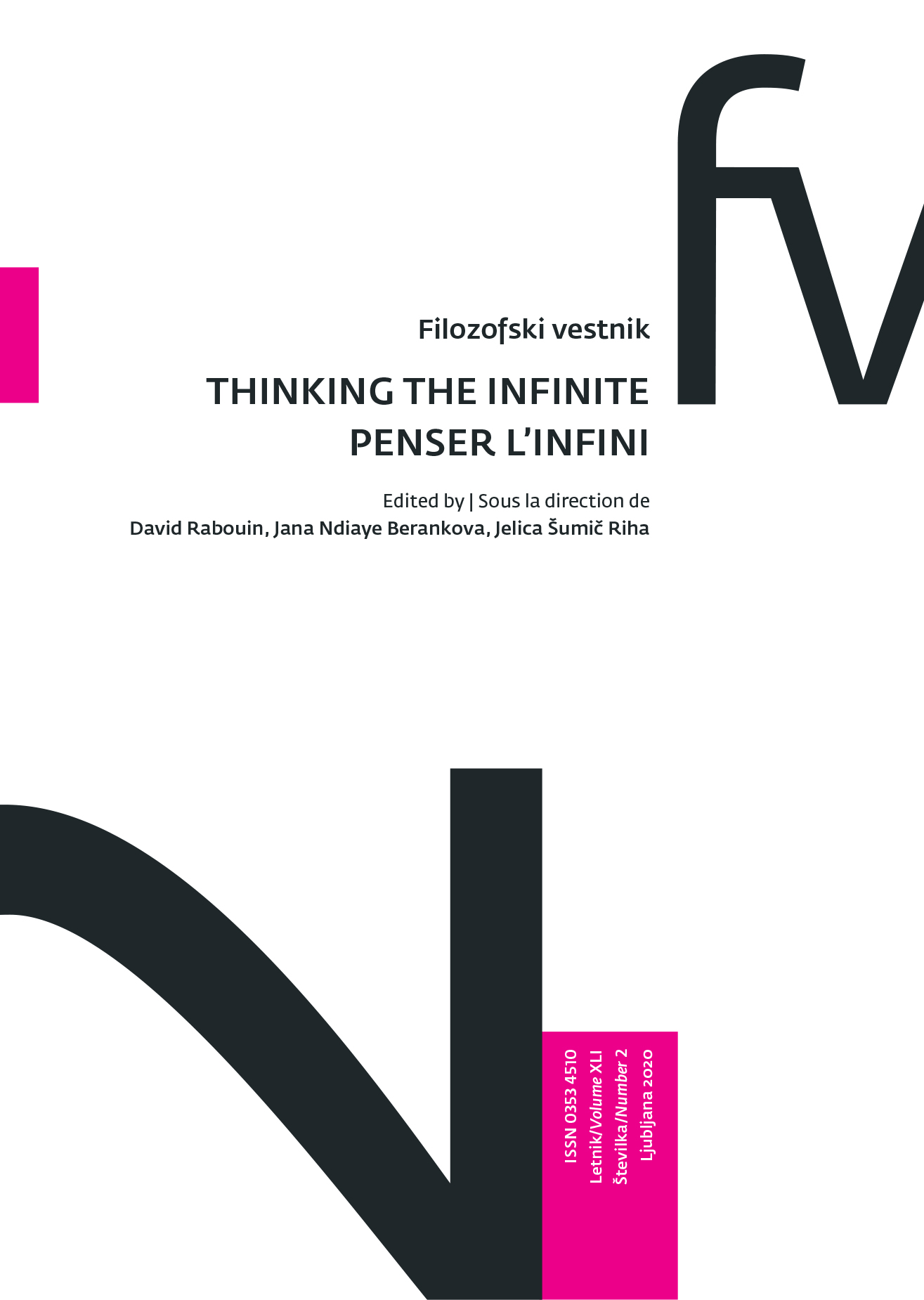The Place of Mathematics: Badiou with Lacan
DOI:
https://doi.org/10.3986/fv.41.2.04Keywords:
mathematics, philosophy, psychoanalysis, the real, formalisation, Cantor, Lacan, BadiouAbstract
The paper attempts to give an account of two different ways of relating to mathematics: Lacan’s and Badiou’s. Its starting point is Badiou’s and Lacan’s interpretations of Russell’s infamous definition of mathematics, according to which mathematics is a discourse in which no one knows what one is talking about, nor whether what one is saying is true. While for Badiou, the ignorance that is supposed to characterise mathematics according to Russell only concerns the role philosophy assigns to it, namely, it being identified with the science of being qua being, for Lacan the ignorance constitutive of mathematics should rather be seen as a symptom resulting from the reduction of truth to a mere truth value. In discussing the detected divergences in these two readings, the paper shows how the access to psychoanalysis as well as the access to philosophy coincides with a certain access to mathematics, although we are not dealing with the same type of access.
Downloads
References
Badiou, Alain, Théorie du sujet, Seuil, Paris 1982
― L’Être et l’événement, Seuil, Paris 1988
― « Philosophie et mathématique », Conditions, Seuil, Paris 1992
― « Sujet et infini », Conditions
― « La mathématique est une pensée », Court traité d’ontologie transitoire, Seuil Paris
― Le Siècle, Seuil, Paris 2005
― Le Séminaire. Lacan. L’antiphilosophie 3, 1994–1995, Fayard, Paris 2013
― Éloge des mathématiques, Flammarion, Paris 2015
― L’immanence des vérités, Fayard, Paris 2018
Cantor, Georg, Gesammelte Abhandlungen mathématischen und philosophischen Inhalts,
E. Zermelo (éd.), Springer, Berin 1932
― « Fondements d’une théorie générale des ensembles », trad. J.-C. Milner, Cahiers
pour l’analyse (10/1969)
Charraud, Natalie, Infini et Inconscient. Essai sur Georg Cantor, Anthropos-Economica,
Paris 1994
Imbert, Claude, « Où finit le platonisme ? », dans Alain Badiou : Penser le multiple,
Charles Ramond (éd.), L’Harmattan, Paris 2002
Kant, Emmanuel, Critique de la raison pure, dans OEuvres philosophiques, tome I : Des
premiers écrits à la Critique de la raison pure (1747–1781), Bibliothèque de la Pléiade,
Gallimard, Paris 1980
Lacan, Jacques, « Science et vérité », dans Écrits, Seuil, Paris 1966
― « Séminaire de Jacques Lacan, Le savoir du psychanalyste, 1971–1972 » (inédit)
― « Séminaire de Jacques Lacan, XXII, R.S.I. 1972–1973 », (inédit)
― Le Séminaire de Jacques Lacan, Livre XX, Encore, Seuil, Paris 1975
― « Séminaire de Jacques Lacan, XXV, Le moment de conclure 1977–1978 », (inédit)
― Le Séminaire de Jacques Lacan, Livre XVII, L’envers de la psychanalyse, Seuil, Paris
― « L’étourdit », dans Autres écrits, Seuil, Paris 2001
― « La note italienne », Autres écrits
― « Télévision », Autres écrits
Lavendhomme, René, Lieu du sujet. Psychanalyse et mathématique, Seuil, Paris 2001
Miller, Jacques-Alain, « Vers un signifiant nouveau », Revue de l’ECF (20/1992)
Russel, Bernard, Écrits de logique philosophique, trad. Jean-Michel Roy, PUF, Paris 1989
― « Work on the principles of mathematics », The International Monthly, 4 (1/1901)
Downloads
Published
How to Cite
Issue
Section
License
Authors guarantee that the work is their own original creation and does not infringe any statutory or common-law copyright or any proprietary right of any third party. In case of claims by third parties, authors commit their self to defend the interests of the publisher, and shall cover any potential costs.
More in: Submission chapter





